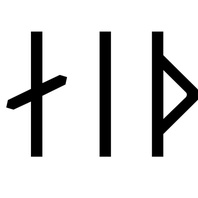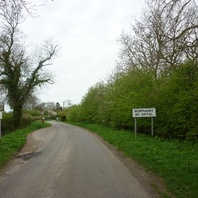
Viking Names
Hreidar
The Old Norse male personal name Hreiðarr is very common in Norway but relatively uncommon elsewhere in the Viking world. It can be found as the first element in the place-name Rearsby, Leicestershire. It also features as the name of the main character in the short tale of Hreiðarr the Foolish.
Read More

Viking Names
Normanby by Spital
Normanby by Spital, in the Aslacoe Wapentake of Lincolnshire, takes its name from the Old English ethnonym Norðman ‘Northman, Norwegian’ and the Old Norse element bý ‘a farmstead, a village’. A Domesday form of the name, Normanestouu, has as the second element Old English stow ‘a place, a place of assembly’, but this form is not supported by later recordings. The suffix Spital is for its proximity to Spittal in the Street, ‘hospital on a Roman road (Ermine Street)’. Traditionally, the place-name has been interpreted as referring to a settlement of Norwegians (in an area where most of the Scandinavian settlers were Danes). However, the exact implications of such a name are not yet fully understood and are the subject of ongoing work by Dr Jayne Carroll of the Institute for Name-Studies, University of Nottingham. There are other Normanbys in Lincolnshire, Normanby in Burton upon Stather and Normanby by Stow.
Read More

Viking Names
Temple Normanton
Temple Normanton, in the Scarsdale Hundred of Derbyshire, takes its name from the Old English ethnonym Norðman ‘Northman, Norwegian’ and the Old English element tun ‘farm, settlement’. There are several places of this name, predominantly in the East Midlands: five in Nottinghamshire, also others in Derbyshire, Leicestershire, Lincolnshire and Rutland, and one in the West Riding of Yorkshire. Previously the prefix was North to distinguish it from South Normanton. The prefix Temple refers to previous ownership by the Templars. Traditionally, the place-name has been interpreted as referring to a settlement of Norwegians (in an area where most of the Scandinavian settlers were Danes). However, the exact implications of such a name are not yet fully understood and are the subject of ongoing work by Dr Jayne Carroll of the Institute for Name-Studies, University of Nottingham.
